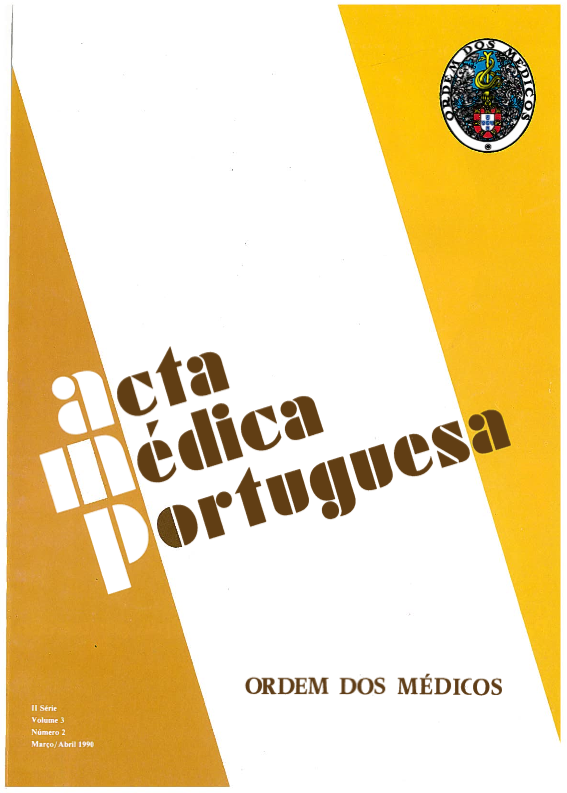Erradicação da hepatite B em Portugal. Um desafio ao alcance do Serviço Nacional de Saúde.
DOI:
https://doi.org/10.20344/amp.4550Resumo
The aim of this work is to evaluate a major epidemiological problem--human hepatitis B virus (HBV) infection--in the world and in Portugal--reinforcing WHO's view that it is a worldwide health problem. Portugal is considered a risk area for HBV infection, with 30% of the population having had contact with the virus and 1 to 5% of chronic carriers (100 to 150,000 persons). Deficient information, education and sanitary conditions aggravate the national situation, urging for official measures that may, in future, lead to a status of controlled infection (less than 0.1% chronic carriers). We propose an educative and informative campaign, the fulfillment of sanitary measures legally controlled as well as the central support for vaccination against HBV. Some of the fundamental points for a legal document that institute a national program for HBV infection control are proposed. At present, cost-benefit relation seems to be favourable--but an adequate plan considering scientific and technical criteria is needed and essential to guarantee that benefits will outweigh investment in terms of Public Health. Recombinant vaccines, obtained by genetic engineering, are referred as the preferential type of vaccine to choose.Downloads
Downloads
Como Citar
Edição
Secção
Licença
Todos os artigos publicados na AMP são de acesso aberto e cumprem os requisitos das agências de financiamento ou instituições académicas. Relativamente à utilização por terceiros a AMP rege-se pelos termos da licença Creative Commons ‘Atribuição – Uso Não-Comercial – (CC-BY-NC)’.
É da responsabilidade do autor obter permissão para reproduzir figuras, tabelas, etc., de outras publicações. Após a aceitação de um artigo, os autores serão convidados a preencher uma “Declaração de Responsabilidade Autoral e Partilha de Direitos de Autor “(http://www.actamedicaportuguesa.com/info/AMP-NormasPublicacao.pdf) e a “Declaração de Potenciais Conflitos de Interesse” (http://www.icmje.org/conflicts-of-interest) do ICMJE. Será enviado um e-mail ao autor correspondente, confirmando a receção do manuscrito.
Após a publicação, os autores ficam autorizados a disponibilizar os seus artigos em repositórios das suas instituições de origem, desde que mencionem sempre onde foram publicados e de acordo com a licença Creative Commons









